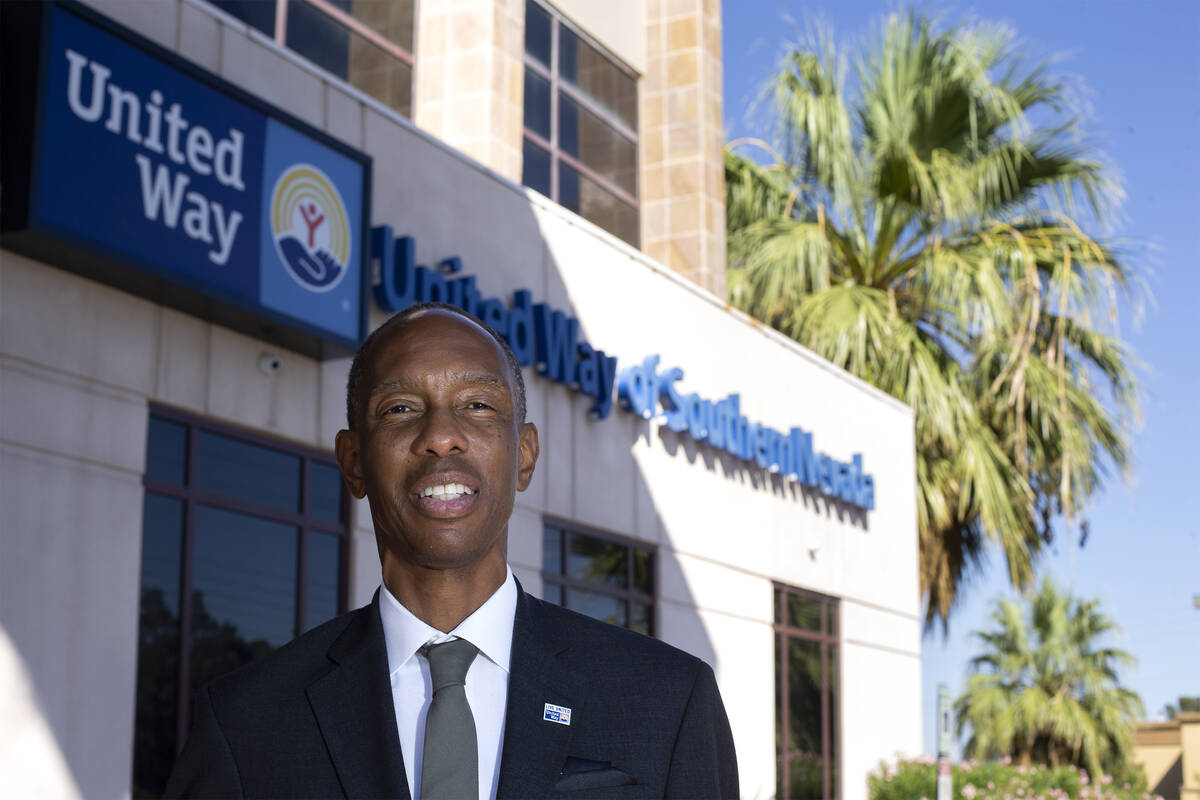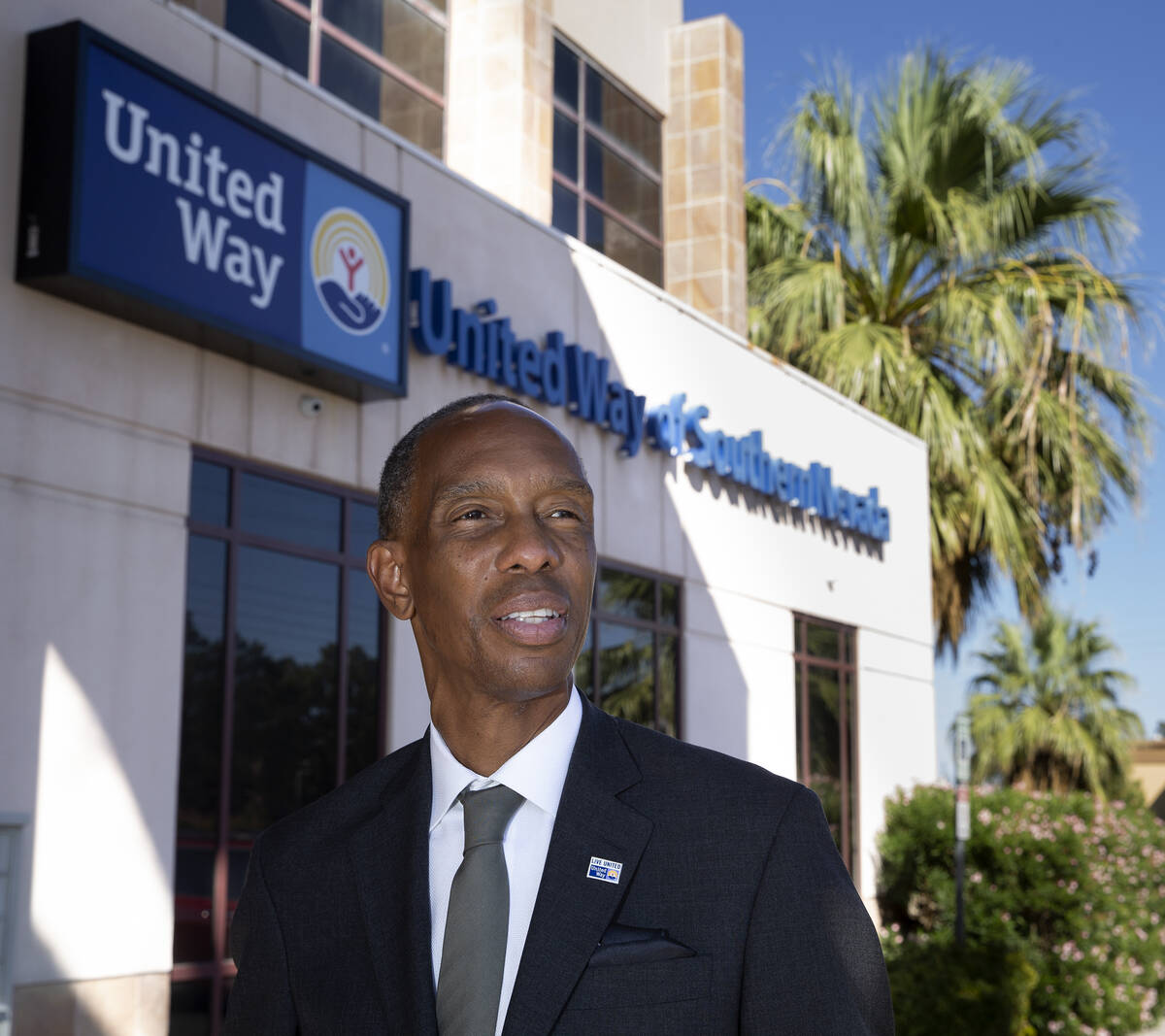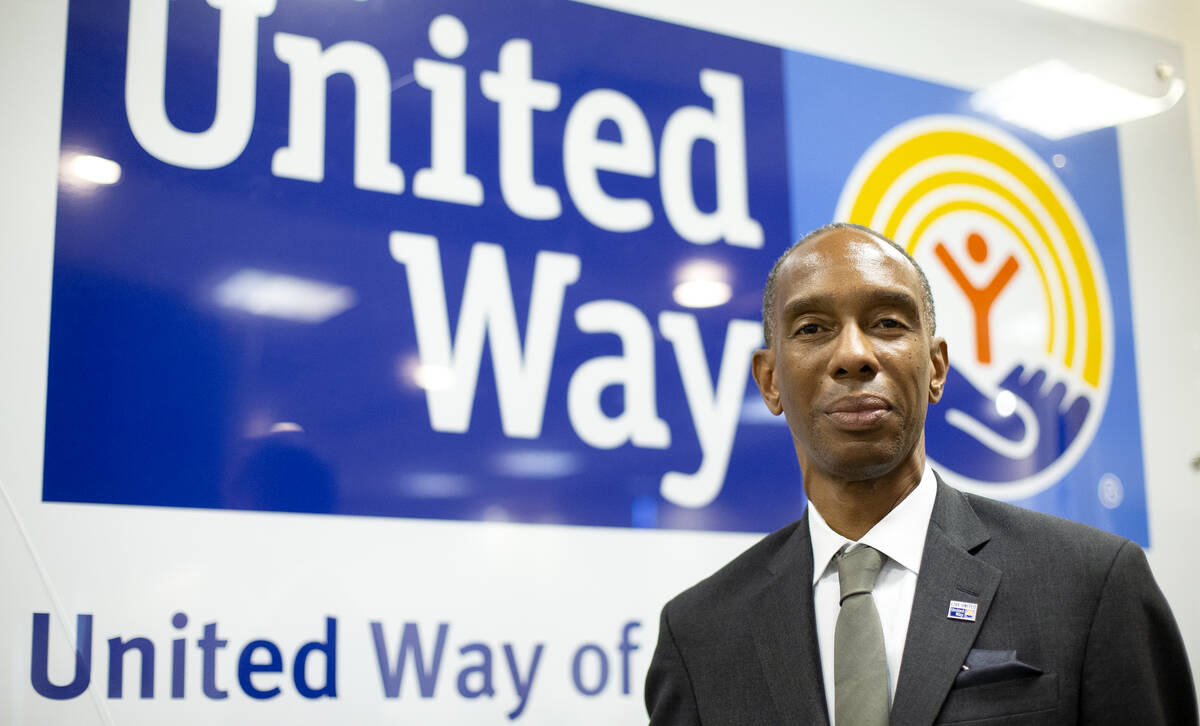New United Way CEO looks forward to helping his hometown
United Way of Southern Nevada’s new leader considers his appointment to president and CEO a direction from God to return to helping his hometown.
That’s why Julian High was compelled to take on the top role of one of Southern Nevada’s largest nonprofits, he said in an interview with the Review-Journal on Tuesday.
High, of North Las Vegas, attended Chaparral High School and previously served as the founder and president of a C-suite consulting firm, J3H Platinum. He also worked as the director of community and government affairs for Sahara Gaming Corporation and worked with the National Industries for the Blind and the Human Rights Campaign, leading operations in human resources and diversity, equity and inclusion projects.
High replaces Kyle B. Rahn, who resigned earlier this year. He is the first Black leader of United Way of Southern Nevada, the nonprofit said.
Interview questions and responses have been edited for length and clarity.
Review-Journal: What made you initially want to apply for this role?
High: I knew that I was going to start looking for the next thing in my life, and that was to help the community where I grew up. I knew that we could retire to any place in the country. Although my husband is retired, I clearly am not. So, I knew that I wanted to be in Las Vegas because I knew that I wanted to come back and give something to the community that means so much to me and gave so much to me.
I grew up in the poorest part of town. In my high school graduating class, there were 28 Black kids who graduated in a class of 700 people. I was student body president of the school with that small of a Black population. I never felt anything other than love and compassion. I had kids in my school whose parents were casino owners and kids in my school whose parents were housekeepers, and we were all the same. My love of this community is deep because this community showed me I could do whatever I wanted. I could have any kind of opportunities that I wanted if I chose to work hard and be good to people. I got that from this community.
That’s why I think I believe that this is divine providence that I get to come back and lead such an amazing group of people, and be a part of a group of committed nonprofit leaders and philanthropists who really embody the spirit of what it means to be in Las Vegas. It means we take care of each other, and we’re good to each other and we figure things out together. That’s my worldview and that was formed right here in Las Vegas.
You’ve held a lot of different human resources and diversity, equity and inclusion roles in the past. What did you learn from them that you want to bring to the United Way?
I understood that it was important for the long-term health of that organization that we diversify in multiple points throughout the organization because it just made business sense. And certainly, my passion for driving that was twofold. One, I wanted to be inclusive of everyone around the table and, at the same time, deliver real results for the organization’s bottom line.
I understood — and still continue to understand — that those two things aren’t exclusive. They’re inextricably bound, and you need to be able to weave diversity of experiences, diversity of colors, race, sexualities, everything in order to move the needle for any organization.
That’s really what we do at United Way of Southern Nevada. We bring disparate groups, all types into the fold and help them utilize and leverage the resources available to us in the community to create good change.
Do you have any memories of interacting with United Way when you were growing up or in previous jobs?
While my family never accessed United Way services, my brother and nephew are individuals who sometimes need assistance from agencies that are within the United Way network of nonprofits simply because my brother doesn’t have an education and my nephew doesn’t have an education. I help them to the extent that I can, (but) there are times when they have to tap into the resources.
I was at one of our partner nonprofits, Leaders in Training, last week and I said to the executive director, “I’m going to have my nephew bring his kids here because they could certainly benefit from the services that you guys provide.” (Leaders in Training is) really about supporting kids so they can get a college degree to end the cycle of poverty — if you’re able to do that, it’s incredibly uplifting. It was an “aha” moment. I just learned something in my role as president of United Way that could potentially have an impact for my nephew and my grandnieces and grandnephews.
What goals do you have for the organization?
We have a tremendous responsibility in this moment to continue the long tradition of work that we’ve done with providing emergency assistance and critical assistance to people in times of need, and United Way has always been there.
We deployed 2,600 volunteers in the last year, we provided $4.1 million in emergency food and shelter program funding during the last year and we’ve raised $2.4 million to provide food, shelter and utility assistance. We did this as the local United Way. And then you lay on top of that, we were given the tremendous responsibility and opportunity to deploy the MacKenzie Scott gift. (Scott, Amazon co-founder and Jeff Bezos’ ex-wife, donated $10 million to UWSN in December 2020. It was the largest gift in UWSN’s history.)
My personal goals for the organization would be that we’re the preeminent convener and collaborator and capacity-builder for nonprofits in the Las Vegas Valley. I think that we’re well-positioned and I think that we’re well-suited for the role. With all that we have still left to do, United Way is uniquely positioned and uniquely suited to do so effectively in the community.
Is there anything in the UWSN that you want to change or improve upon?
I believe in the process of continuous improvement. I believe every day you get up and you try to do a better job than you did the day before. In this organization I’m committed to adhering to that principle. We can look at everything is up for evaluation. Everything is up for transformation. Because if you don’t, you become stale and you don’t shift to meet the needs of your constituents, which is ultimately serving the greatest amount of people that we can serve in Southern Nevada who need help.
I come in with a fresh set of eyes. I’ve been on the East Coast for a long time; I bring that perspective to bear. I bring my own personal perspective of knowing this community that I love is a place of good people with good intentions. I bring with me my experience as a Black gay man who understands that change always makes things better. I’m not afraid of change and I want to be a servant leader. I use that term often with our team. We are here to serve the neediest, the most at risk, the youth of this community. We do so as with a vision of being a servant to folks in this community. It’s radical love and it’s radical compassion, and passion for the work we do here.
McKenna Ross is a corps member with Report for America, a national service program that places journalists into local newsrooms. Contact her at mross@reviewjournal.com. Follow @mckenna_ross_ on Twitter.























